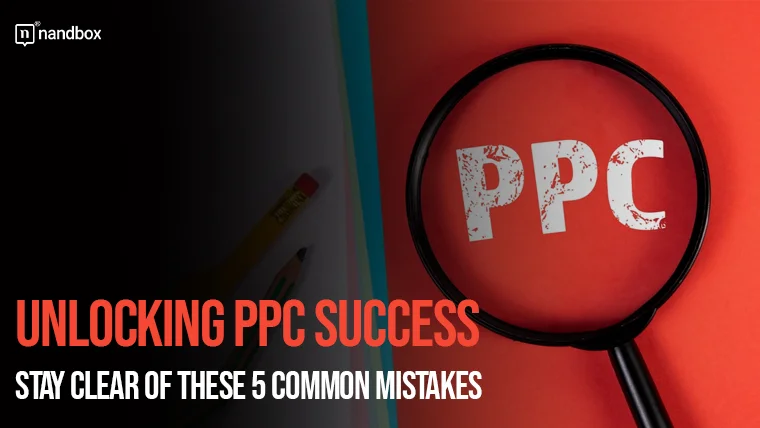Pay-per-click (PPC) advertising is a powerful instrument in the world of digital marketing. It allows businesses to focus on their audience with precision, control their budgets, and achieve measurable results. When executed correctly, PPC campaigns can be highly effective in driving traffic and conversions. However, PPC success is not guaranteed, and there are common mistakes that can lead to wasted budgets and subpar results. In this blog, we will discuss five PPC mistakes that you must avoid at any cost.
1. Neglecting Keyword Research
According to Ferocious Media, the best PPC agency, keyword research forms the basis of a successful PPC campaign. Failing to invest time and effort into thorough keyword research is a mistake that can be costly. Here’s why:
Wasting Budget: If you bid on the wrong keywords, you could end up paying for clicks that don’t convert. For example, if you’re selling high-end smartphones, but your ads appear for generic keywords like “phone,” you might attract irrelevant traffic that doesn’t lead to sales.
Low-Quality Score: Google and other search engines consider the relevance of your keywords to your ad and landing page. Poorly chosen keywords can lead to a low Quality Score, which can result in higher costs per click (CPC) and lower ad positions.
Missed Opportunities: Failing to discover long-tail keywords and specific keyword variations means you’re missing out on potential customers. In-depth keyword research can uncover hidden gems that your competitors might overlook.
To avoid this mistake, invest time in thorough keyword research. Use keyword research tools like Google Keyword Planner, SEMrush, or Ahrefs to identify high-performing keywords relevant to your business. Monitor your keywords regularly and refine your list to improve campaign performance.
2. Ignoring Negative Keywords
Just as essential as selecting the right keywords is identifying and excluding the wrong ones through negative keywords. Negative keywords are terms that you specify to prevent your ads from displaying for irrelevant search queries. Neglecting negative keywords can lead to several problems:
Click Wastage: Without negative keywords, your ads might appear for searches that are completely unrelated to your products or services. Clicks from these irrelevant searches can quickly deplete your budget without delivering any value.
Diluted Data: Irrelevant clicks can skew your data and make it challenging to assess the true performance of your campaign. This can lead to misguided decisions and adjustments.
Reduced Ad Relevance: High ad relevance is essential for a good Quality Score, which in turn impacts your ad’s visibility and CPC. Failure to use negative keywords can negatively affect ad relevance.
To avoid this mistake, regularly review your search term reports to identify irrelevant queries that trigger your ads. Add these as negative keywords to filter out unwanted traffic and improve campaign efficiency.
3. Inadequate Ad Testing
A/B testing is a pertinent aspect of optimizing PPC campaigns. Neglecting to test different ad variations can result in missed opportunities for improving click-through rates (CTR) and conversions. Here’s why ad testing is crucial:
Stagnation: Without regular ad testing, your ads may become stagnant and less effective over time. What works today may not work as well tomorrow, so constant optimization is essential.
Underperformance: It’s impossible to know which ad copy, headlines, or calls to action resonate best with your audience without testing. Neglecting this vital step can lead to underperforming campaigns.
Lost Conversions: A poorly performing ad may deter potential customers from clicking or taking action. Effective ad testing can lead to higher CTRs and more conversions.
To avoid this mistake, run A/B tests on various elements of your ads, including headlines, ad copy, and images. Use the data from these tests to refine your ad creatives and maximize their impact.
4. Neglecting Mobile Optimization
In today’s digital landscape, mobile devices are a dominant platform for internet access. Neglecting mobile optimization in your PPC campaigns is a mistake that can cost you a significant portion of your potential audience. Here’s why mobile optimization matters:
User Experience: Mobile users have multiple needs and expectations compared to desktop users. Neglecting mobile optimization can result in a diminished user experience, leading to higher bounce rates and lower conversions.
Missed Opportunities: Mobile users often have an immediate purchase intent. Neglecting this audience segment means missing out on potential customers who are ready to convert.
Quality Score Impact: Google and other search engines factor in the mobile-friendliness of your landing pages when determining Quality Scores. Neglecting mobile optimization can lead to lower Quality Scores, higher CPC, and lower ad positions.
To avoid this mistake, ensure that your landing pages are responsive and mobile-friendly. Test your ads and landing pages on various smartphone devices to ensure a seamless user experience.
5. Setting and Forgetting
One of the gravest mistakes in PPC advertising is to set up your campaign and forget about it. PPC is not a “set it and forget it” strategy. Campaigns require ongoing monitoring, optimization, and adaptation to changes in the competitive landscape. Here’s why the “set and forget” approach is problematic:
Competitive Changes: The digital advertising landscape is dynamic, with competitors adjusting their strategies, new entrants appearing, and market trends evolving. Neglecting your campaigns can result in your ads being outperformed.
Ad Fatigue: Audiences can become fatigued by seeing the same ads repeatedly. Advertisers who don’t refresh their ad creatives run the risk of decreased engagement and conversion rates.
Missed Opportunities: Seasonal trends, holidays, and special events provide opportunities for targeted advertising. Neglecting campaign management can lead to missed opportunities for promotion during these times.
To avoid this mistake, establish a regular schedule for campaign monitoring and optimization. Look out for performance metrics, adjust your bidding strategy, refresh ad creatives, and adapt to changes in your industry.
Summary
In conclusion, PPC advertising is a necessary tool, but it’s not without its pitfalls. To achieve success and avoid wasting your budget, steer clear of these five common mistakes: neglecting keyword research, ignoring negative keywords, inadequate ad testing, neglecting mobile optimization, and the “set and forget” approach. By recognizing and rectifying these errors, you can improve the efficacy of your PPC campaigns and achieve better results. If you’d rather have a professional PPC management agency look into your paid advertising needs, Mavlers is the perfect choice for you. Remember that PPC advertising requires ongoing attention and adaptation to remain competitive and drive meaningful ROI.





